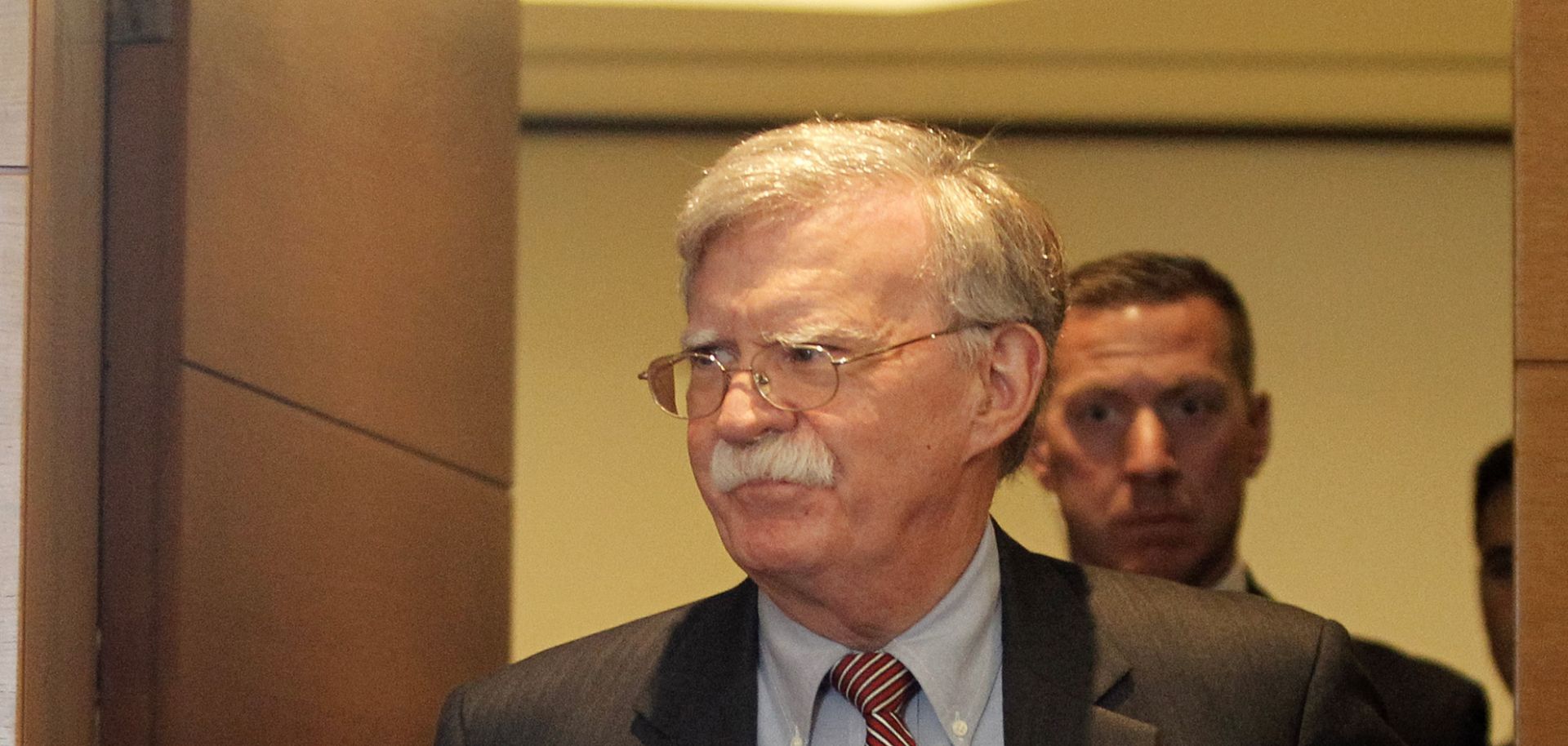GUIDANCE
How Bolton's Removal as U.S. National Security Adviser Will Shape U.S. Foreign Policy
Sep 10, 2019 | 22:06 GMT

Former U.S. national security adviser John Bolton. Bolton's departure has the potential to affect U.S. policy on everything from Iran to arms control.
(STR/NurPhoto via Getty Images)
Highlights
- John Bolton's departure as national security adviser may open the door wider to diplomacy in the Trump administration's handling of Iran, but only if the White House relents and allows some sanctions easing.
- With Bolton out of the picture, U.S. Secretary of State Mike Pompeo may face fewer obstacles in trying to get negotiations back on track to secure an Afghan peace deal.
- Even without Bolton's hard-line opposition to legacy arms control frameworks, negotiations for New START may still be in trouble.
- Bolton was already largely sidelined on White House policy on North Korea, but his removal will send an important signal to Pyongyang that the White House may be more willing to compromise.
Subscribe Now
SubscribeAlready have an account?
